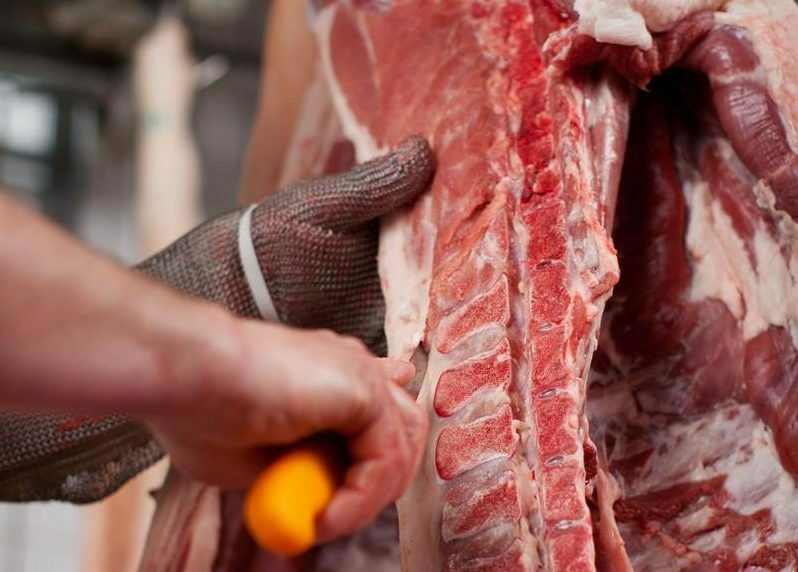Some employers in the Irish meat processing industry took the threat of Covid-19 seriously at the beginning of the coronavirus crisis – but some didn’t, and completely ignored health authority recommendations, according to trade union SIPTU.
Speaking on RTÉ Radio 1’s Morning Ireland this morning, Friday, May 15, Gerry McCormack, SIPTU deputy general secretary, said:
“The problem that has occurred really is that, when this crisis began first, many plants and operations were given guidelines from the HSE [Health Service Executive] in how to operate. There was no protocol in place at the time.
“Dealing specifically with the meat industry, it is an essential service; it provides food not just for this country – it also provides food for other European countries as well.
“What seems to have happened is some employers really didn’t take this serious [though] some of them did,” McCormack said.
Some employers ignored completely the recommendations from the HSE on how to do physical distancing and put in place proper processes to protect workers.
McCormack noted that what appears to have happened is that “quite a few workers have got infected in this industry”.
“If you contrast for example the meat industry with the dairy industry – both provide food throughout in this country and abroad – and we have very little, if any, outbreaks in the dairy industry.
“It’s a well-paid, well-regulated industry compared to the meat industry,” he added.
Turning to a breakdown of the workforce in meat plants, the deputy general secretary said:
“The demographics of employment are completely different as well; not just the terms and condition of employment, but in some plants, up to 70% to 90% of the workers are migrant workers.
There is also this problem where we have migrant workers living together, cohabiting with groups of other workers going into the plant.
“Some of them are afraid to say that they have problems; some of them are afraid to say that they’re sick.”
The SIPTU official then highlighted the work permit pilot scheme launched by the Department of Business, Employment and Innovation in 2018 and 2019, where 1,500 permits were allocated for non-EEA (European Economic Area) citizens for the meat industry.
“We have always said that shouldn’t have happened,” McCormack said.
Protective Measures
Meat Industry Ireland (MII) issued a statement last night, outlining that its members have been proactive and have put in place a very substantial suite of protective measures in processing plants.
“They are working with the HSE and authorities in the particular plants affected and the meat processing industry is following the HSE guidance and advice on all aspects related to Covid-19, including preventative measures and procedures around testing,” the processor representative body stressed.
MII reiterated: “We continue to prioritise the safety and well-being of staff, farmer suppliers and service providers at meat processing facilities throughout the country.
“Every meat processing site has a Covid-19 response team in place to manage implementation of enhanced safety measures and communications with staff and HSE.”
Meat plants have implemented protective measures in line with best international practice, MII stressed.
- Additional and enhanced cleaning and disinfection of contact surfaces and communal areas;
- Extensive temperature checking of staff and visitors to sites;
- Reduced line speed and staggered break times to facilitate distancing; and
- Installation of Perspex screens as shielding barriers as well as the supply of visors for staff use.
These measures and protocols adhere to the recommendations of the authorities. Any incident of a positive Covid-19 case has immediate follow-up with the HSE at local level.
MII’s members are committed to implementing any further measures deemed necessary to protect the health and safety of staff, the Ibec body concluded.
